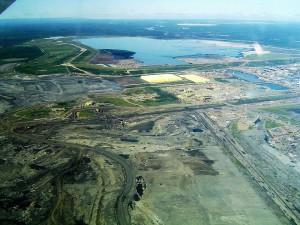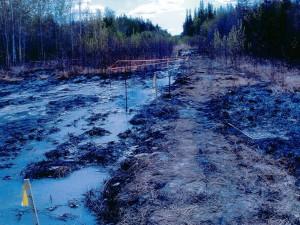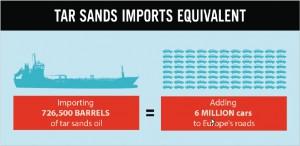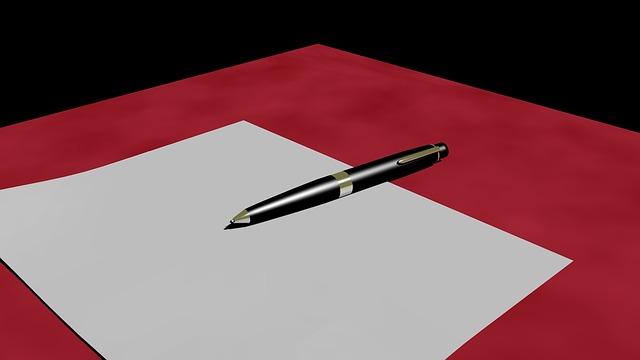Die 600.000 Barrel Öl werden in Bilbao eintreffen. Sie wurden von Repsol[1] gekauft, einem multinationalen Konzern, der in Spanien seinen Hauptsitz hat. Teersandöl ist einer der schmutzigsten fossilen Brennstoffe, die heutzutage kommerziell produziert werden. Seine Produktion erzeugt drei- bis fünfmal soviele klimaschädliche Emissionen wie die von konventionellem Rohöl. Der Klimaforscher James Hansen[2] bezeichnet Teersandöl als „die größte Kohlenwasserstoffbombe auf Erden“. Teersandöl tötet Wildtiere und Vegetation und bedroht die kanadischen Ureinwohner. Teersande werden zurzeit nur in Kanada im großen Stil ausgebeutet.
Die Umweltschützergruppen erklärten die Ankunft des Tankers als Angriff auf die Klimaschutzbemühungen in der Europäischen Union und riefen zu sofortiger Aktion auf, um Teersandprodukte aus Europa herauszuhalten.
2009 hatte sich die europäische Union auf ein Gesetz geeinigt, mit dem die Emissionen von Transportbrennstoffen minimiert werden sollten — die Fuel Quality Directive. Diese Directive sollte 2010 in Kraft treten. Wegen der Untätigkeit der EU-Kommission ist sie aber bis heute nicht in Kraft gesetzt worden.[3] Die kanadische Regierung hatte massives Lobbying betrieben, um diese Directive zu stoppen.[4]
„Das Anlanden von riesigen Mengen dreckigen Teersandöls an unseren Küsten steht im Widerspruch zu Europas Zielen, die Mobilität zu dekarbonisieren, und verstärkt seine Abhängigkeit vom Öl. Europäische Autofahrer werden gezwungen sein, ihre Tanks mit Teersandölprodukten zu füllen und so den Ausstoß von Schadstoffen erhöhen — statt sie zu senken — und damit die Kosten der Dekarbonisierung in die Höhe treiben“, ergänzt Laura Buffet von Transport & Environment.
„Diese Anlieferung heute in Bilbao könnte weiteren Importen von dreckigen Teersandölen Tür und Tor öffenen. Europa kann keine Vorreiterrolle beim Klimaschutz einnehmen und gleichzeitig Teersandöle importieren. Die EU darf ihre klimaschützerische Glaubwürdigkeit nicht aufs Spiel setzen und muss der intensiven Lobbyarbeit der Ölindustrie und der kanadischen Regierung widerstehen“, stellt Franziska Achterberg von Greenpeace fest.
Friends of the Earth Europe, Transport & Environment und Greenpeace appellieren an die EU-Kommission, eine starke Fuel Quality Directive in Kraft zu setzen, um die schmutzigsten Brennstoffe aus Europa herauszuhalten. Aktivisten der spanischen NGO Ecologistas en Acción werden das Schiff heute in Bilbao mit einer Protestaktion „begrüßen“ und fordern, dass Repsol sofort mit dem Import von Teersandöl aufhört.
NACHTRAG 3. Juni 2014:
Euractiv, 2.6.2014 – First tar sands shipment to Europe sparks protests
Hintergrund:
Bericht warnt vor Klimarisiken kanadischen Ölsandes [DE]
=====================================================================================
FRIENDS OF THE EARTH EUROPE, GREENPEACE. TRANSPORT & ENVIRONMENT
Media advisory
Wednesday May 28, 2014
**FIRST DELIVERY OF DEVASTATING TAR SANDS ARRIVES IN EUROPE**
Brussels, May 28 — The first shipment of highly polluting Canadian tar sands oil to Europe is due to arrive in Spain tomorrow (Thursday May 29). Environment groups Friends of the Earth Europe, Transport & Environment and Greenpeace warn that this delivery provides a snapshot of Europe’s energy future — a continued addiction to ever-dirtier oil
The 600,000 barrels of oil will arrive in Bilbao and have been purchased by Spain-based multinational Repsol [1]. It is the first major shipment of tar sands oil to the EU.
Tar sands oil is one of the dirtiest fossil fuels in commercial production today and produces three to five times more climate changing emissions than conventional crude oil. Described as „the biggest carbon bomb on the planet“ by leading climate change scientist James Hansen [2] the extraction of tar sands causes pollution and deforestation, kills wildlife and threatens indigenous Canadian communities. Tar sands are currently only exploited on a large scale in Canada.
The environmental groups declared the arrival of the tanker an indictment of the European Union’s climate action and called for urgent action to keep tar sands out of Europe.
/“Tar sands are deadly for our climate and must be kept in the ground and out of Europe. To give a lifeline to this dangerous industry is to set us up for climate disaster,“ /said *Colin Roche of Friends of the Earth Europe. *
In 2009 the European Union agreed to reduce emissions from transport fuels through a law known as the Fuel Quality Directive. This directive was due to enter into force in 2010. Due to the European Commission’s inaction, it still hasn’t been implemented [3]. The Canadian government has undertaken an aggressive lobbying effort to stop the law. [4]
/“The landing of massive amounts of dirty tar sands to our shores runs counter to Europe’s stated aspirations to decarbonise transport and curtail its addiction to oil. European drivers will be forced to fill up their tanks with tar sands that will raise emissions — not lower them — and push up the costs of decarbonisation by billions of euros,“ /added *Laura Buffet of Transport & Environment. *
A report by the US-based Natural Resource Defense Council shows that tar sands imports could skyrocket from about 4,000 barrels per day (bpd) in 2012 to over 700,000 bpd in 2020 as a result of pipelines that are planned or under construction in the US and Canada. These imports would undermine the Fuel Quality Directive’s aim to reduce fuels emissions by 6%. [5]
/“This shipment could open the door to more imports of dirty tar sands. Europe can’t be both a climate champion and a market for climate-wrecking tar sands. The EU must uphold its environmental credentials and stand up to the intense lobbying by the oil industry and the Canadian government,“ /said *Franziska Achterberg of Greenpeace.*
Friends of the Earth Europe, Transport & Environment and Greenpeace are calling on the European Commission to finally implement a strong Fuel Quality Directive to keep the most polluting fuels out of Europe.
Activists from Ecologistas en Accion will ‚greet‘ the ship with a protest demanding that Repsol immediately stops importing tar sands oil.
For more information about the protest please contact Mariano González, Ecologistas en Acción, +34 (0) 617 650 785
***
Fußnoten
[1] http://www.reuters.com/article/2011/08/29/idUS257590805720110829
[2] http://af.reuters.com/article/energyOilNews/idAFL1N0O00YS20140514?sp=true
[3] In October 2011, the European Commission published a proposal to implement the FQD. In February 2012, Member States voted, but the proposal was neither approved nor rejected. This means the Commission now has to submit its proposal to the Council of Ministers. The Commission finalised an impact assessment study in 2013 but the proposal is yet to be released. More on the Fuel Quality Directive: http://www.foeeurope.org/barroso-fqd-now
[4] http://www.foeeurope.org/sites/default/files/publications/keeping_their_head_in_the_sand_january_2013.pdf
[5] http://www.greenpeace.org/eu-unit/en/News/2014/Flood-of-tar-sands-imports-equivalent-to-adding-6-million-cars-to-Europes-roads–study/






